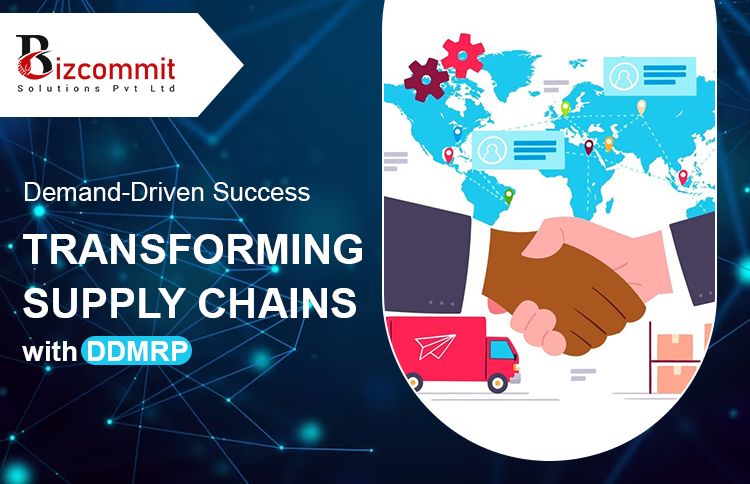
Chief Data Architect
In today’s dynamic business landscape, efficient supply chain management (SCM) is no longer a competitive advantage; it’s a necessity. Companies striving for success require a holistic view of their operations, from procurement and production to warehousing and distribution. This is where Enterprise Resource Planning (ERP) systems come into play.
ERP software acts as the central nervous system of an organization, integrating core business functions like finance, human resources, and – crucially for this discussion – supply chain management. By leveraging an ERP system, businesses can unlock a multitude of benefits that optimize their supply chains, leading to increased efficiency, reduced costs, and improved customer satisfaction.
Unveiling the Power of ERP for Supply Chain Management
Here’s a closer look at the key advantages ERP offers for managing your supply chain:
Enhanced Visibility and Transparency: ERP systems break down information silos, providing a real-time, unified view of your entire supply chain. Inventory levels, production schedules, supplier performance, and order status are all readily accessible, empowering informed decision-making at every stage.
Optimized Inventory Management: ERP streamlines inventory control by providing accurate data on stock levels across warehouses and distribution centers. This eliminates the risk of stockouts and overstocking, leading to reduced carrying costs and improved cash flow.
Streamlined Procurement Processes: ERP automates repetitive tasks such as purchase order generation, vendor communication, and invoice processing. This reduces manual errors, streamlines communication with suppliers, and fosters stronger vendor relationships.
Improved Demand Forecasting and Planning: By analyzing historical sales data and market trends, ERP systems enable businesses to create more accurate forecasts, allowing for better production planning and material procurement. This proactive approach ensures businesses have the right products in stock to meet customer demand.
Enhanced Collaboration and Communication: ERP facilitates seamless communication and collaboration between internal departments and external partners like suppliers and distributors. This real-time information sharing fosters a more agile and responsive supply chain.
Reduced Lead Times and Improved On-Time Delivery: By optimizing processes and streamlining communication, ERP helps businesses reduce lead times – the time it takes to fulfill an order. This translates to faster delivery, improved customer satisfaction, and a potential competitive edge.
Data-Driven Decision Making: ERP captures and consolidates data from various supply chain functions. This wealth of data empowers businesses to make informed decisions based on real-time insights. Data analytics capabilities within ERP systems can identify areas for improvement, allowing for continuous optimization of the supply chain.
Increased Resilience and Risk Mitigation: The visibility provided by ERP allows businesses to identify and proactively address potential disruptions within the supply chain. For example, if a supplier faces production delays, the ERP system can trigger alerts, enabling the business to explore alternative sourcing options or adjust production schedules to minimize impact.
Cost Reduction and Increased Profitability: By optimizing inventory levels, streamlining processes, and improving efficiency, ERP systems can significantly reduce operational costs throughout the supply chain. This translates to increased profitability and a stronger financial position.
Scalability and Adaptability: ERP systems are designed to be scalable, accommodating the growth of your business and evolving supply chain needs. Modern ERP solutions are often cloud-based, offering greater flexibility and accessibility compared to traditional on-premise deployments.
Implementing ERP for Supply Chain Success
While the benefits of ERP for supply chain management are undeniable, successful implementation requires careful planning and execution. Here are some key considerations:
Identifying Business Needs: Clearly define your current supply chain challenges and desired outcomes. This will guide your selection of the most suitable ERP features and functionalities.
Selecting the Right ERP System: Evaluate different ERP solutions based on your specific requirements, budget, and industry needs. Consider factors like scalability, ease of use, and vendor support.
Data Migration and Integration: Plan for a smooth transition of existing data into the ERP system. Ensure seamless integration with any existing business applications to avoid data silos.
Change Management and Training: Prepare your workforce for the transition to a new ERP system. Provide comprehensive training to ensure user adoption and maximize the benefits of the system.
Conclusion
In today’s competitive business environment, a well-optimized supply chain is critical for success. ERP systems offer a powerful solution, providing the tools and functionalities needed to streamline operations, gain valuable insights, and make data-driven decisions. By implementing an ERP system effectively, businesses can unlock a multitude of benefits, transforming their supply chains into a source of competitive advantage.
For those looking to fortify their Project development team or seeking expert assistance in building secure applications, Bizcommits is here to help. With a team of skilled developers and a proven track record of delivering secure and scalable solutions, we can be your trusted partner in the ever-evolving realm of application Development. Ready to discuss your project? Contact us today!









 Process
Process  About Us
About Us  Careers
Careers  Management
Management